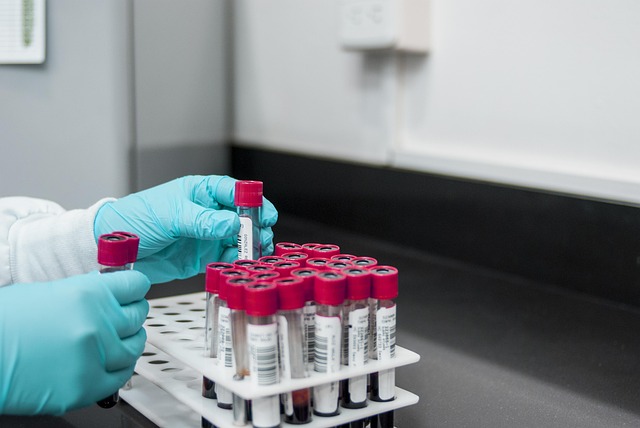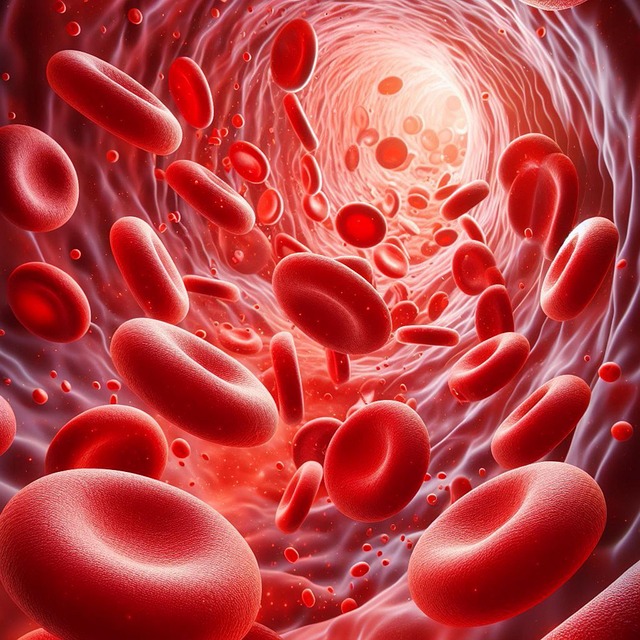The Standard Liver Blood Test UK assesses cardiovascular health through key lipid profile measures: total cholesterol, LDL (bad) cholesterol, HDL (good) cholesterol, and triglycerides. Abnormal levels indicate potential liver damage, prompting management strategies like dietary adjustments, exercise, and medication to maintain healthy cholesterol levels. Regular follow-up tests monitor progress.
Cholesterol management is a crucial aspect of maintaining overall health, and one of the essential tools in this process is the Standard Liver Blood Test UK. This comprehensive article guides you through the process of cholesterol level testing with blood tests, offering insights into what to expect during a typical UK liver blood test and how to interpret your results effectively. By understanding these factors, you can take control of your cholesterol levels and make informed decisions for better health.
- Understanding Cholesterol and Blood Tests
- Standard Liver Blood Test UK: What to Expect
- Interpreting Results: Managing Your Cholesterol Levels
Understanding Cholesterol and Blood Tests

Cholesterol is a waxy substance found in all cells in your body, playing a crucial role in various functions, such as producing hormones and building cell membranes. However, high levels of cholesterol in the blood, particularly low-density lipoprotein (LDL) cholesterol, can lead to health issues. This is where blood tests come into play. A Standard Liver Blood Test UK, also known as a Lipid Profile Test, measures the levels of different types of fats and cholesterol in your blood. It’s a simple procedure involving a small sample of your blood, offering valuable insights into your cardiovascular health.
This test evaluates several key markers: total cholesterol, LDL (bad) cholesterol, high-density lipoprotein (HDL or good) cholesterol, and triglycerides. Results help healthcare professionals assess your risk for heart disease and stroke. By understanding your cholesterol levels through a Standard Liver Blood Test UK, you can take informed steps to manage your health, such as adopting a healthy diet, increasing physical activity, or considering medical interventions if necessary.
Standard Liver Blood Test UK: What to Expect

A Standard Liver Blood Test UK is a routine check that assesses your liver’s health by examining various blood markers. This test typically involves taking a small sample of your blood, usually from a vein in your arm, and analyzing it for specific proteins, enzymes, and other substances crucial for evaluating liver function. The results provide valuable insights into your liver’s overall condition.
During the test, healthcare professionals will look at levels of key indicators like alanine aminotransferase (ALT), aspartate aminotransferase (AST), alkaline phosphatase (ALP), gamma-glutamyl transferase (GGT), and total protein. Elevated or abnormal levels of these substances may suggest liver damage, inflammation, or other conditions that require further investigation. It’s a simple yet effective way to detect potential liver issues early on, allowing for timely intervention and management.
Interpreting Results: Managing Your Cholesterol Levels

After your standard liver blood test in the UK, understanding your results is crucial for managing cholesterol levels effectively. The report will typically include measurements for total cholesterol, LDL (low-density lipoprotein), HDL (high-density lipoprotein), and triglycerides. Total cholesterol should ideally be below 5mmol/L; anything above could indicate a higher risk of heart disease. LDL cholesterol is often referred to as ‘bad’ cholesterol because it can build up in the walls of arteries, leading to narrowing and potential blockages. Levels above 3mmol/L are generally considered high. In contrast, HDL cholesterol, or ‘good’ cholesterol, helps remove bad cholesterol from your system. Higher levels (above 1mmol/L) are beneficial. Triglycerides, a type of fat in the blood, can also impact heart health; elevated levels (above 1.7mmol/L) may require lifestyle adjustments.
Managing your cholesterol involves a combination of dietary changes, regular exercise, and sometimes medication. A balanced diet low in saturated fats and trans fats is recommended. Increasing fibre intake from fruits, vegetables, and whole grains can also help lower LDL cholesterol. Regular physical activity, such as 150 minutes of moderate-intensity aerobic activity weekly, supports healthy cholesterol levels. If lifestyle changes alone don’t suffice, healthcare professionals might prescribe medications like statins to reduce bad cholesterol. Regular follow-up blood tests are essential to monitor your progress and adjust management strategies accordingly.
Cholesterol level testing through standard liver blood tests in the UK is a crucial step towards managing your heart health. By understanding your results, you can make informed decisions to manage your cholesterol levels effectively. Regular checks and proactive steps, such as adopting a balanced diet and incorporating regular exercise, are key to maintaining optimal cholesterol levels and reducing the risk of cardiovascular diseases.
